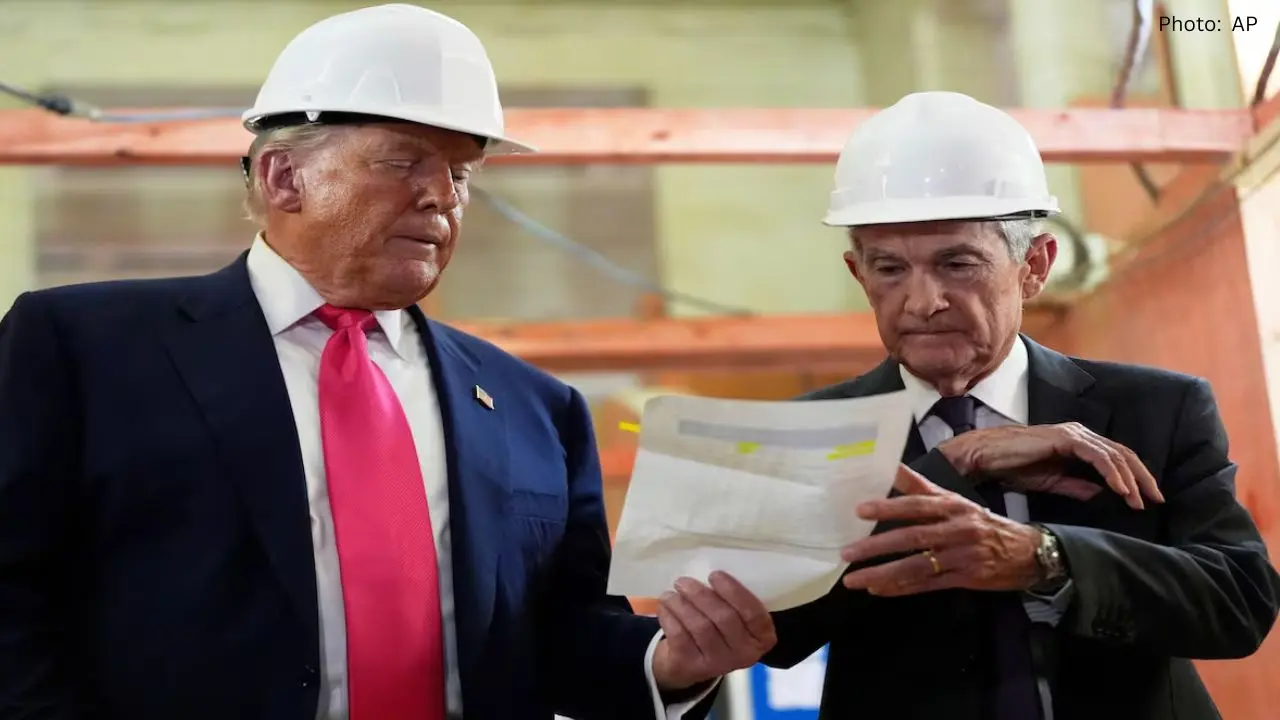
DOJ Subpoenas Challenge Federal Reserve's Autonomy
Jerome Powell cautions that DOJ's subpoenas could undermine the Federal Reserve's independence and d

The University of Michigan (U-M), a flagship public university renowned worldwide for its academic excellence and innovation, is entering an important new chapter in 2025. Alongside significant leadership transitions in its governing Board of Regents, the university is also celebrating inspiring achievements and exciting campus developments that promise to shape its future strongly.
Leadership Transitions in the Board of Regents: Stability and New Vision
At the heart of this transition is the change in the leadership of the U-M Board of Regents, the elected body responsible for overseeing the university’s governance, policies, and high-level decisions. After a year of considerable challenges, Regent White stepped down from the role of Board Chair, having provided steady leadership during one of the most demanding periods in the university's history. The board publicly acknowledged her dedication and resilience, expressing deep gratitude for her service.
Regent Mark Bernstein has now taken on the vital role of Chair of the Board of Regents. His experience and strong leadership capabilities make him well suited to guide the university through the critical process of recruiting and selecting the next permanent university president. This transitional period requires a leader who can unify and steer the institution confidently, and Regent Bernstein has accepted the responsibility with commitment.
Appointment of an Interim President: Chancellor Domenico Grasso
In line with these key governance changes, the university appointed Domenico Grasso as interim president. Dr. Grasso brings extensive leadership experience, notably as Chancellor of the University of Michigan-Dearborn since 2018. Under his leadership, UM-Dearborn achieved noteworthy successes, including boosting its four-year graduation rates significantly and tripling external research funding, which elevated the campus to R2 research status.
Grasso’s interim presidency is marked by a pledge to provide steady, energetic, and inclusive leadership during the crucial search for the university’s next permanent president. Importantly, he has communicated that he will only serve in an interim capacity and will not seek to become the permanent president, which allows the search process to be handled without any conflict of interest.
The Search for the Next President: A Moment of Transformation
The vacant president role presents the University of Michigan with not just an opening but an opportunity for transformation. The university community, including faculty, students, staff, and alumni, see this moment as a chance to find a leader who truly embodies the spirit and values of Michigan. There is widespread agreement that the next president should be someone who not only understands the rigors of university leadership but also has a deep connection to the university’s culture and mission.
Some voices have highlighted the importance of selecting a president who reflects the evolving diversity of the university’s population and Michigan’s broader communities. This includes advocating for leadership that advances equity and inclusion beyond mere rhetoric—leadership that delivers measurable outcomes that benefit all students and staff.
Honoring Leadership Excellence on Campus
The university’s commitment to leadership excellence extends beyond governance and administration to celebrating individuals who have made significant contributions to society and the university’s mission. In a recent President’s Medal of Excellence luncheon, U-M honored five remarkable figures:
Congresswoman Debbie Dingell, who represents Michigan’s 6th Congressional District and is known for her advocacy on education and community issues.
Jalen Rose, former basketball star and philanthropist, whose work supports youth development and sports.
Fred and Judy Wilpon, alumni and founding donors of the Kessler Scholars Program, which advances opportunities for first-generation college students.
Dr. Francis Collins, former director of the National Institutes of Health and a celebrated scientist who was also a distinguished U-M faculty member.
These honorees represent the spirit of leadership, service, and community impact that U-M strives to cultivate among its students and alumni.
Campus Energy and Commitment to Broadening Impact
As the university transitions in leadership, the overall campus atmosphere is vibrant with energy and determination. Faculty members, students, and staff continue to drive forward innovative research, inclusive policies, and community engagement projects. Donors and alumni remain actively involved, supporting scholarships, academic programs, and infrastructure improvements.
This collective effort underscores U-M’s mission to broaden its impact not only within Michigan but across the nation and the world. The university understands that its leadership selections and campus achievements today will shape the environment and opportunities for generations of students yet to come.